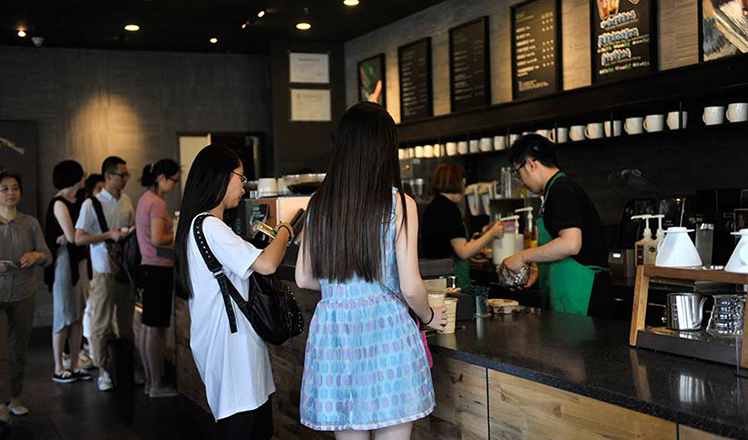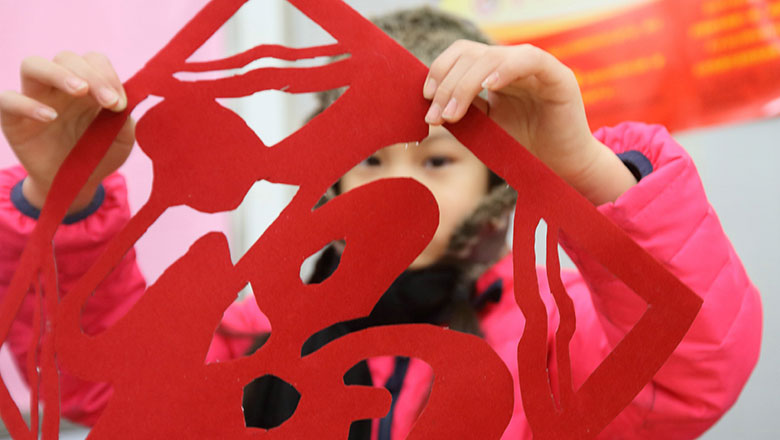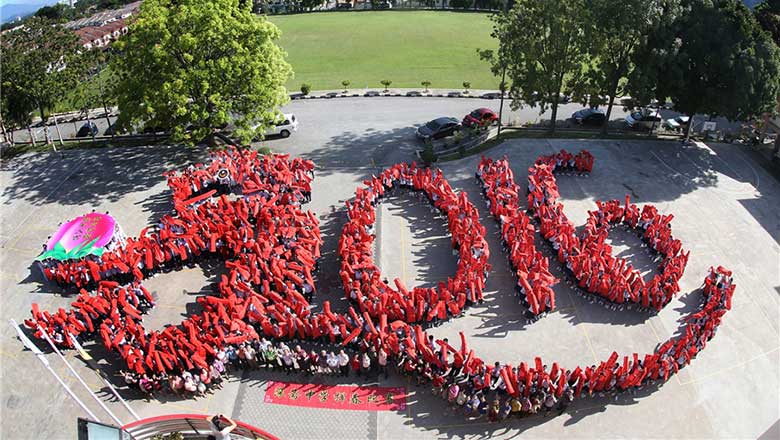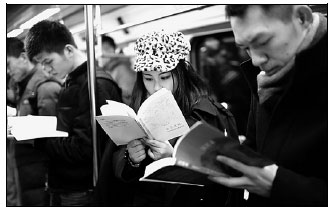Chinese spending more money on buying printed books
Updated: 2016-02-03 08:24
By Yang Yang(China Daily)
|
||||||||
Wang Chong and his friends gathered at underground train stations in the cities of Beijing, Shanghai and Wuhan for a few days in January with the aim of getting noticed.
As they got in and out of coaches-and they did quite a bit of that - they made sure fellow commuters saw them glued to the books they were carrying.
Their flash mob was to raise awareness of reading among Chinese, says Wang, who initiated the activity.
"It's time for us to pay more attention to our inner lives," the 27-year-old Beijinger says of what he perceives as the need to read.
He got a master's degree in philosophy three years ago, and reading has become an important part of his life, he says.
In the past year, many Chinese like Wang have spent money buying books - both offline and online.
Since 2014, the goal of building a "nation of readers" has been included in the annual Report on the Work of the Government.
The market value of printed books grew at 10 percent in 2014 and at 12.8 percent in 2015, according to OpenBook, an industry monitor.
Dangdang, China's largest online bookseller, sold 500 million copies in 2015, rising from330million in the previous year. JD.com, another leading online bookseller, sold 200 million copies last year - 12 printed books for every online user on an average.
But in 2014, Chinese read 4.56 copies of offline books on an average, as compared with 4.77 in 2013. While the purchase of offline books went up, people spent at least 30 minutes on an average reading books on smartphones and other devices last year.
Last year's best-seller was the coloring book Secret Garden, according to OpenBook. Dangdang sold some 1.5 million copies.
Other popular titles in 2015 included The Kite Runner by Khaled Hosseini, Unworried Store by Higashino Keigo and Pingfan de Shijie (Ordinary World) by Lu Yao, according to OpenBook.
When the Chinese stock markets hit their highest point of last year, books on investment and finance peaked in sales, according to Dangdang.
Last year, the most popular purchase among Chinese in their 40s and 50s was The Lost Nutriology: Away from Diseases. People born a decade or two later loved Zero to One: Notes on Startups or How to Build the Future, among similar books.
For younger Chinese, the majority of the books they bought were on English and political examinations, the online bookstore says.
The popularity of some Chinese TV series also led to the sale of novels on which they are based, including Faerie Blossom, Nirvana in Fire and Legend of Miyue.
In general, leading online bookstores, including Dangdang and JD, say Chinese bought a lot of self-help books last year.
According to a survey by Beijing Normal University, Chinese still prefer printed books.
Among the nearly 30,000 people who took the survey online, nearly 51.9 percent say they like reading printed books, followed by 26.8 percent who like reading on smartphones, and others who read on computers.
Dangdang, with 20 million digital readers, saw about 100 million copies of books downloaded in 2015. The average time readers spent on its reading app surpassed an hour per day.
But it is still very hard to survey digital books in China because of piracy issues, says Yao Hong, marketing director of OpenBook.
YuHong, managing director of Amazon Kindle, said at the Beijing International Book Fair in August that in the last three years, the download volume of books on Kindle has been growing.
But Kindle users read only 42 percent of the books on the e-reader. The rest are read offline.
As the government is advocating more reading and is building more libraries, the industry of printed books will see at least 10 years of golden development, Xu Jianhua, a professor of Nankai University, says in an interview with Chinaxwcb.com, a site under the State Administration of Press, Publication,Radio, Film and Television.
yangyangs@chinadaily.com.cn
|
A flash-mob event in Beijing's subway aims to raise awareness of reading.He Guanxin / Provided To China Daily |
(China Daily 02/03/2016 page20)

 China's 'Moon Walker' sends back stunning HD photos
China's 'Moon Walker' sends back stunning HD photos
 Starbucks, office rents and CEOs form alternative outlook on China
Starbucks, office rents and CEOs form alternative outlook on China
 China's most beautiful wetlands
China's most beautiful wetlands
 Premier Li takes Spring Festival greetings, and gifts, to old folk
Premier Li takes Spring Festival greetings, and gifts, to old folk
 International friendship blossoms in peony painting
International friendship blossoms in peony painting
 Culture Insider: Little New Year
Culture Insider: Little New Year
 Global celebrations mark Chinese New Year
Global celebrations mark Chinese New Year
 Motorcycles ride home for Spring Festival reunion
Motorcycles ride home for Spring Festival reunion
Most Viewed
Editor's Picks

|

|

|

|

|

|
Today's Top News
National Art Museum showing 400 puppets in new exhibition
Finest Chinese porcelains expected to fetch over $28 million
Monkey portraits by Chinese ink painting masters
Beijing's movie fans in for new experience
Obama to deliver final State of the Union speech
Shooting rampage at US social services agency leaves 14 dead
Chinese bargain hunters are changing the retail game
Chinese president arrives in Turkey for G20 summit
US Weekly

|

|








